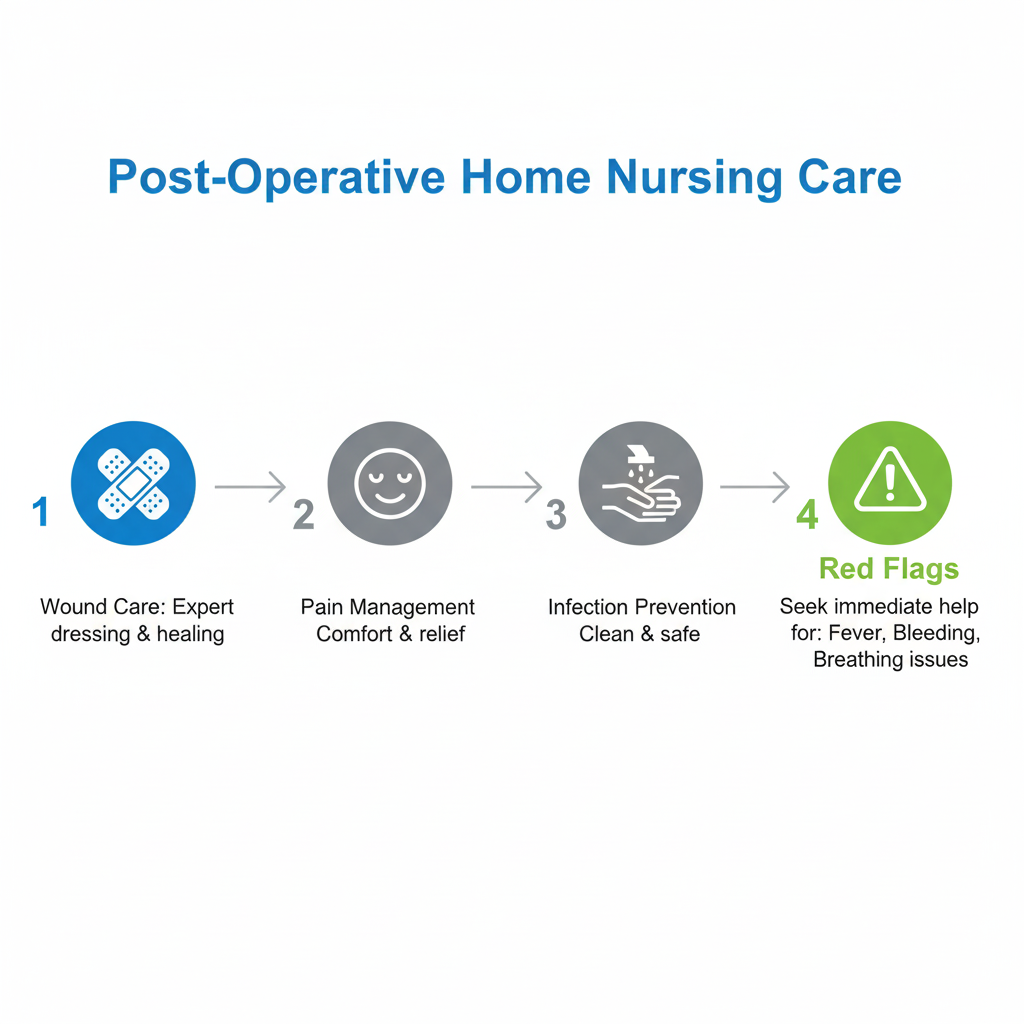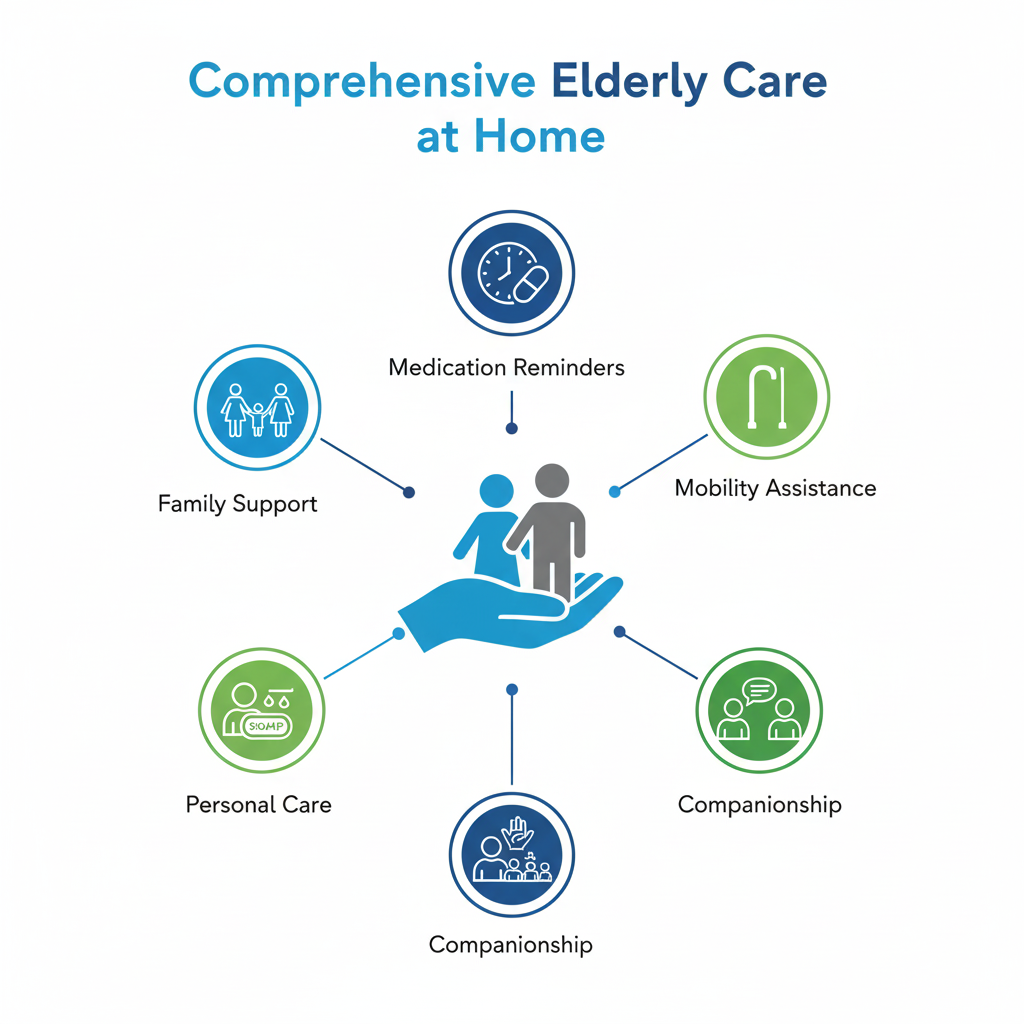Home nursing has changed how families in India get support for those they love. For many, the goal is clear - keep loved ones comfortable and safe at home, with help from experienced, caring nurses. This guide uses simple language to show different types of home nursing services. You will find tips for choosing the right care, what to expect, and how Dr. Morepen Home can support your family.
Why Choose Home Nursing Services?
Families want their loved ones to feel safe and comfortable.
Home nursing is a real way to give medical help without taking someone away from their own room. It makes both patients and families feel calm and at ease.
Key Drivers of Growth in Home Care
There have been more nurses and doctors working from home settings. This is mostly because families want personalized care. Also, traveling to hospitals can be hard, especially for seniors or people who have trouble moving. New mobile medical tools let nurses monitor health from home, so care gets better while families face less stress.
Benefits of Receiving Care at Home
- Less risk of new infections
- Comfort of familiar things and people
- Family can stay close, offering support
- Special steps for each unique patient

Suitability for Different Patient Needs
Home nursing is good for people recovering after major health events, living with a long illness, or growing old and needing extra help. It fits families who want quality care without leaving home.
Skilled Nursing Care at Home
Trained nurses bring their knowledge into your house. They help with medical problems and regular check-ups.
What Skilled Nurses Provide at Home
Nurses track health, change bandages, and give shots or other medicine. They check how someone is healing, watch for warning signs, and help with breathing or feeding tubes if needed.
Common Conditions Managed
- Care after operations
- Long-term illnesses like diabetes or asthma
- Older adults needing regular medicine
Typical Procedures and Monitoring
Nurses are skilled with IV lines, injections, wound care, and catheters. They also look out for changes that could mean more help is needed. Notes are made after each visit, so the family always knows what’s happening.
Choosing Qualified Home Nurses
Ask about a nurse’s training, past jobs, and if they have worked with people like your family member. Dr. Morepen Home picks nurses who have official certificates and do regular safety checks.
Post-Operative Nursing Care
Home can be the safest place for someone after surgery if there is expert help.

Essential Support During Recovery
Nurses watch for problems, handle medicines, and update the doctor if the patient’s condition changes. They help the patient get out of bed, start walking again, and slowly return to daily life.
Pain and Wound Management at Home
Wounds are checked for redness or swelling. Nurses change dressings, keep everything clean, and teach families how to notice any signs of infection.
Infection Prevention Strategies
Home nurses make sure hands and tools are always clean. They explain infection signs so everyone knows what to look for.
Rehabilitation and Physiotherapy Coordination
Often, patients need special exercises after surgery. Nurses set up a plan with physiotherapists and help with stretching and moving.
Red Flags—When to Seek Immediate Help
- High fever
- Unusual bleeding or pain
- Problems with breathing
- Sudden confusion
Elderly Care and Support Services
Older people may need both medical and personal help each day. Home nursing brings safety and friendship.

Comprehensive Elderly Care Options
Services may include help with bathing, feeding, and moving around. Nurses also remind about medications, keeping the routine steady and safe.
Medication Reminders and Health Monitoring
Nurses use simple tools like pill boxes. They keep records of each dose and check things like sugar levels or blood pressure often.
Mobility Assistance and Fall Prevention
Helping someone stand, move around, or use a walking stick lowers the risk of a fall. Nurses also give easy advice, like keeping floors dry and paths clear.
Companionship and Mental Wellbeing
Nurses know that listening and chatting can lift someone’s spirit. They pay attention to changes in mood and help seniors feel less alone.
Supporting Family Caregivers
Families often do most of the caring. Nurses guide them with training and tips, so everyone has more confidence.
Chronic Disease Management at Home
Long-term sickness means families need support that lasts.
Managing Long-Term Conditions (Diabetes, Hypertension, etc.)
Nurses teach how to watch for changes, use home monitoring devices, and keep a health diary. They help track food choices and make reminders for check-ups.

Medication Administration and Vital Checks
Daily pills, shots, or creams must be given the right way every time. Nurses also test blood pressure, blood sugar, or oxygen.
Lifestyle Guidance and Family Education
Small steps at home, like better food choices, make a big difference for many long-term health conditions. Nurses show and explain these changes to all family members.
Device and Equipment Support
Home nurses teach families how to use monitors and simple medical machines safely.
Ongoing Assessment: When to Adjust Care
If something changes, nurses talk with doctors about the new plan. Good chronic care is always up to date.
Palliative and End-of-Life Care
Kindness and relief from pain matter most when facing serious illness.
Focus on Comfort and Quality of Life
At this stage, nurses help manage pain or nausea. The goal is to keep the patient pain-free and peaceful.
Pain and Symptom Management
Nurses work with doctors so the patient feels comfortable. They adjust care as needed and listen closely to what the patient says.
Emotional and Spiritual Support
Simple acts - holding a hand, listening, sharing stories - bring peace. Nurses support both the patient and family.
Family Education and Resources
Families are shown how to help, given guides, and told where they can get help if things get hard.
Specialized Home Nursing Services
Some families look for extra-special help.
Pediatric Nursing and Child Health
Home nurses can support children with ongoing or special medical needs. They also teach parents simple safety tricks.
Postpartum and Newborn Home Care
New mothers and babies can get help with feeding, sleep, and health checks.
Post-Stroke and Neurological Support
Recovery from a stroke takes patience. Nurses follow therapy plans and encourage small steps.
Rehabilitation After Injury or Surgery
Regular sessions with gentle movement help muscles get stronger. Nurses keep notes so everyone knows the progress.
Temporary vs Long-Term Home Nursing
Short-term care handles sudden needs, while long-term support lasts months or more. Dr. Morepen Home works with families to set the right care plan.
Non-Medical Support Services
Simple help around the house is often just as important.
Personal Hygiene and Daily Living Tasks
Getting dressed or washed each day makes a big difference in how someone feels.
Meal Preparation and Nutrition
Balanced meals are made with nutrients and any food restrictions in mind.
Light Housekeeping and Home Safety
Nurses tidy up and give tips- like clear walkways or brighter lights to help prevent accidents.
How to Select the Right Home Nursing Service
Pick care that matches family needs and budget.
Assessing Patient Needs and Care Level
Write a list of what the person needs, from medical support to basic help.
Evaluating Service Providers’ Credentials
Ask to see documents that prove training and certificates. Look for reviews from other families.
Questions to Ask Before Hiring
- Has the nurse worked with similar patients?
- How will care be planned with my family?
- What are the charges?
- Will we get updates?
Understanding Pricing and Insurance Coverage
Some insurance covers home nursing. Ask about costs so you know ahead of time.
Creating a Personalized Care Plan
The plan should be written and shared with everyone in the family.
Technology and Innovation in Home Nursing Services
Phones, tablets, and online tools have changed nursing at home.
Telemedicine and Remote Health Monitoring
Doctors and nurses can check in with patients using video calls. Nurses may help families use apps to track medicine.
Electronic Medical Records in Home Care
Health details are stored online, so each nurse or doctor can see updates.
Emerging Trends in Home Health Support
More nurses use apps, and new portable machines let them check things like heart rate at home.
Conclusion: Navigating Choices in Home Nursing Support
Bringing care home helps keep families together and safe. Dr. Morepen Home gives clear information, skilled care, and plans that fit each family. Whether your loved one needs a little help for a few days or ongoing support, having nursing care at home brings peace of mind every day.
Frequently Asked Questions
1 Which conditions can be managed at home?
Home nursing covers post-surgery recovery, help with chronic illnesses like diabetes and hypertension, elderly care, breathing problems, wound care, and rehabilitation needs.
2 How do I know if home nursing is safe?
Choose a provider that verifies nurse certifications, runs background checks, and follows strict hygiene rules. Trusted services keep family members updated and encourage questions.
3 Who pays for home nursing - insurance or out-of-pocket?
Many providers have transparent prices. Some insurance plans include home nursing, but always check with your insurance company and ask your provider for details.
4 What qualifications should a home nurse have?
Nurses should hold relevant certificates, have experience with similar care needs, and provide references if asked.
5 Is home nursing only for long-term support?
Both short-term and long-term care are available. You can arrange support for recovery or ongoing help for chronic health problems.
.png)


.png)
.png)
.png)
.png)
.png)
.png)
.png)
.png)
.png)
.png)
.png)
.png)
.png)
.png)
.png)
.png)
.png)
.png)
.png)
.png)
.png)


.png)
.png)
.png)
.png)
.png)
.png)
.png)

.png)
.png)
.png)

.png)
.png)
.png)
.png)
.png)
.png)

.png)
.png)

.png)
.png)
.png)

.png)

.png)


.png)







